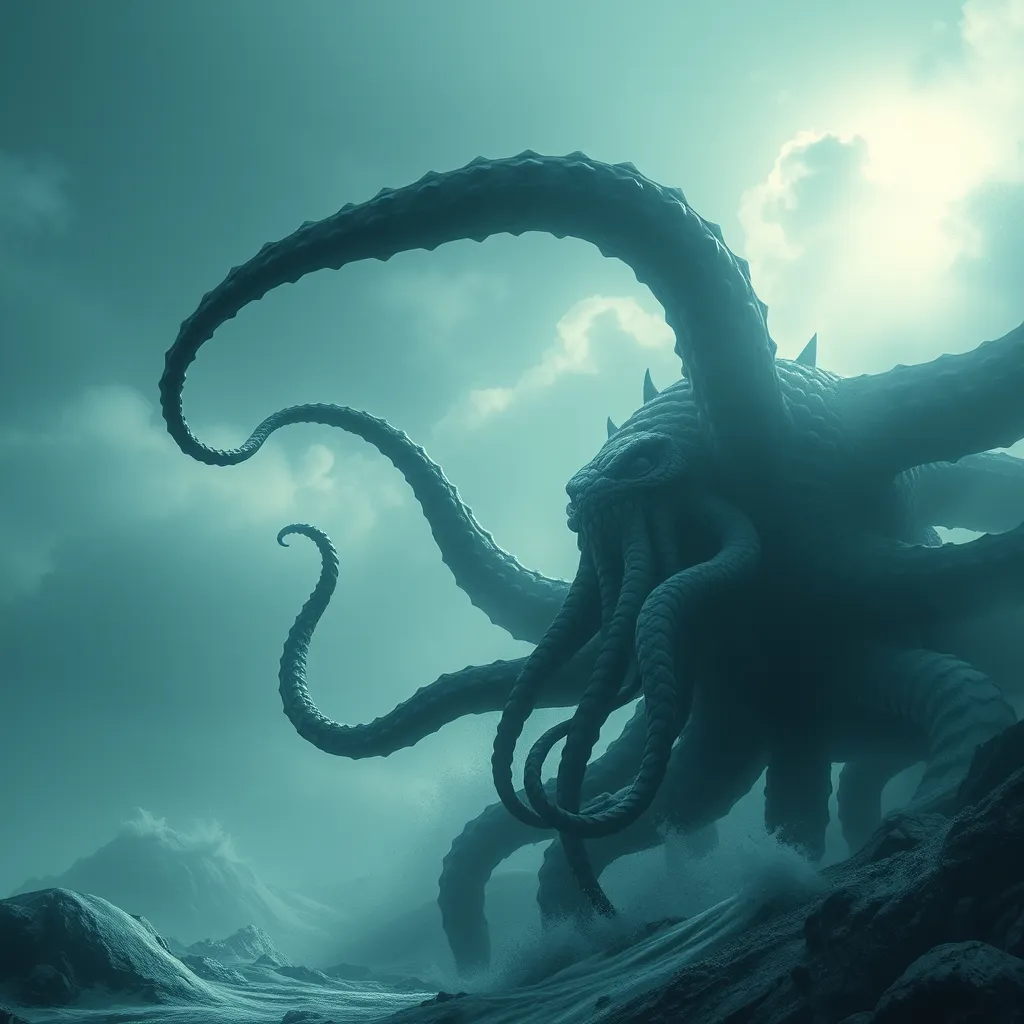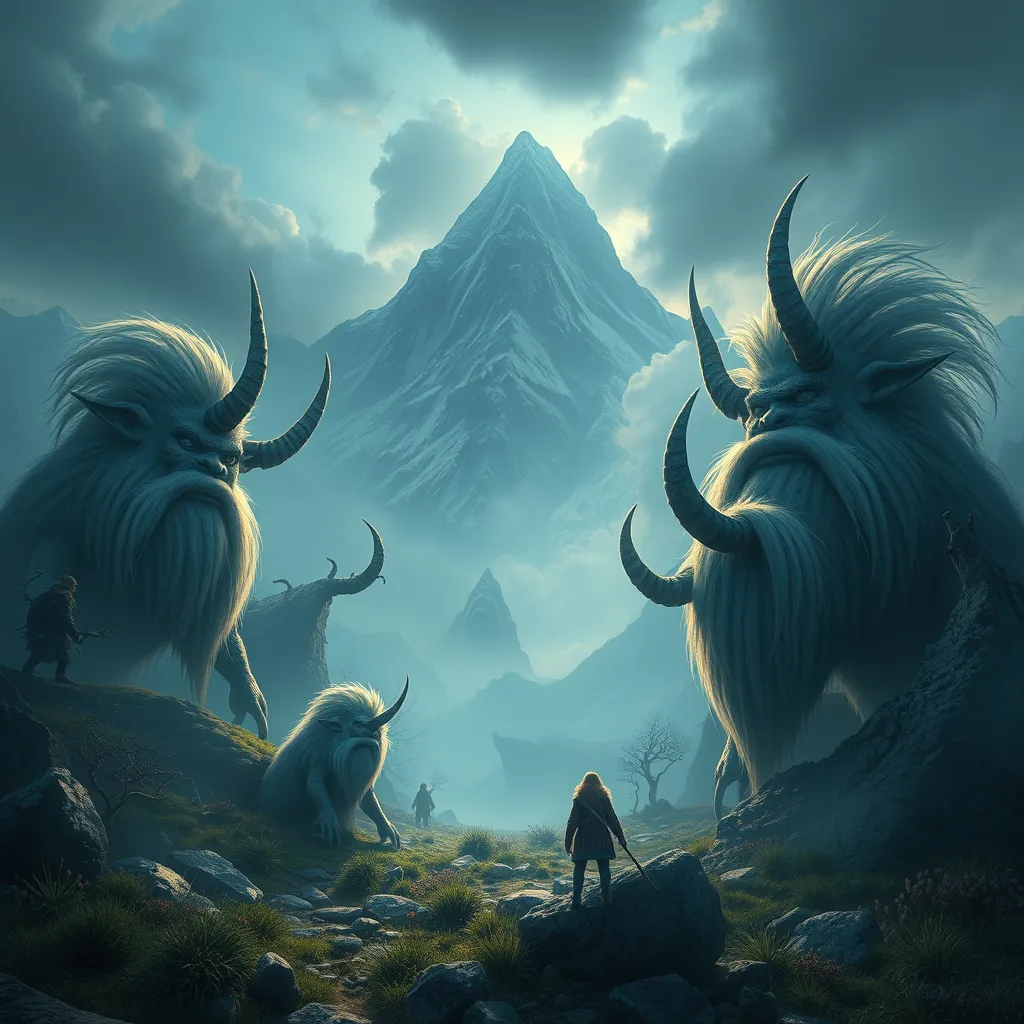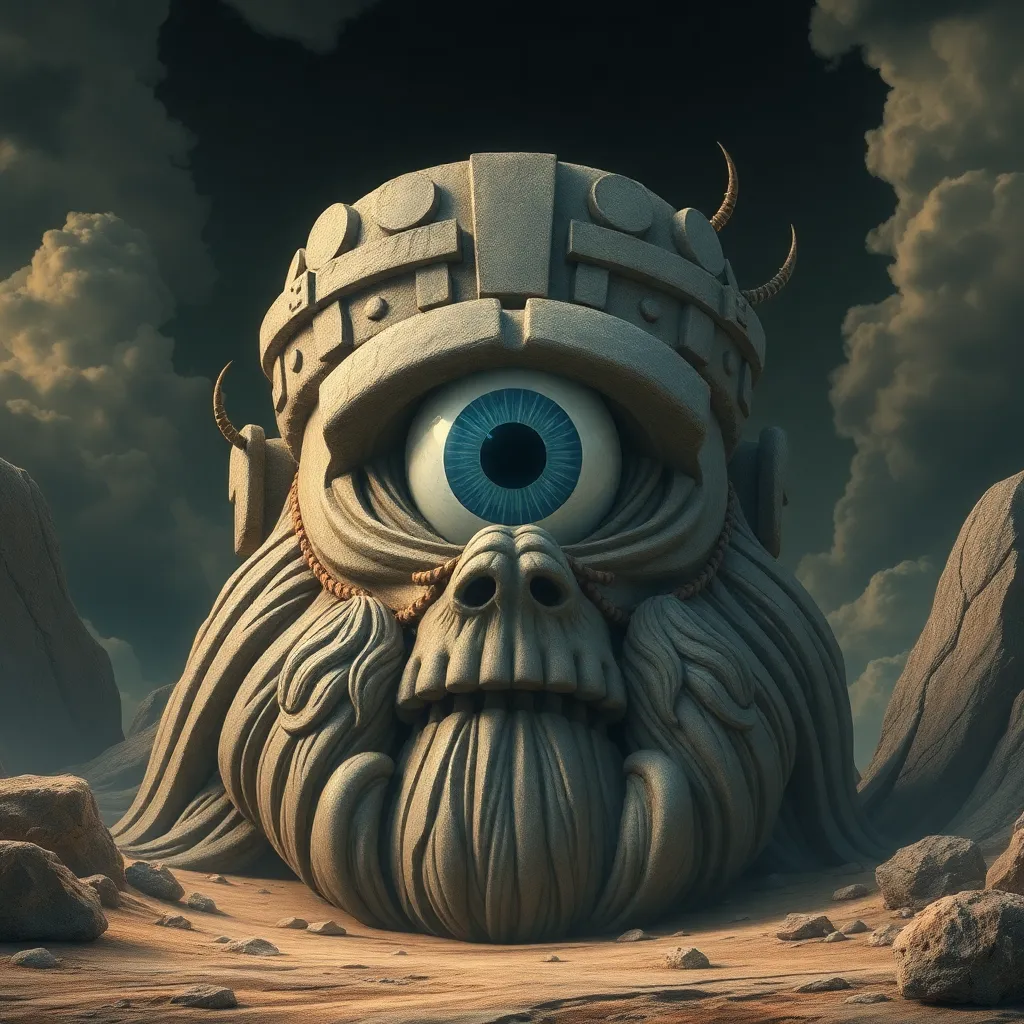The Kraken’s Connection to the Gods: Examining the Monster’s Relationship to Norse Deities
I. Introduction
The Kraken, a legendary sea monster, has captivated the imaginations of people for centuries. Often depicted as a colossal octopus or squid, this creature has become synonymous with the mysteries of the deep sea. In the realm of mythology, the Kraken holds a special place, particularly within Norse mythology, which has significantly influenced its legend. This article aims to explore the intricate connections between the Kraken and various Norse deities, shedding light on how these relationships contribute to our understanding of this enigmatic creature.
II. The Origin of the Kraken Myth
The myth of the Kraken has roots deeply embedded in Nordic folklore, where sea monsters were a common theme. These creatures were often used to explain the perils of the ocean and the unpredictability of maritime life. In early references, the Kraken was described as a monstrous entity that could drag entire ships under the waves.
The historical context reveals that sailors often recounted tales of encounters with such beasts, which were likely exaggerated versions of real-life sea creatures. Early literature, including travel logs and nautical records, mentioned the Kraken, solidifying its place in the minds of those who ventured into the unknown waters. Over time, the image of the Kraken evolved, shifting from a terrifying monster to a symbol of the ocean’s untamed nature.
III. The Kraken: A Symbol of Chaos and Destruction
In Norse mythology, the Kraken embodies chaos and destruction, representing the untamed power of the sea. The ocean was often viewed as a chaotic force, and the Kraken personified this unpredictable nature. The beast’s legendary ability to capsize ships and drown sailors made it a symbol of maritime fears.
Moreover, there are notable parallels between the Kraken and certain chaotic deities in Norse mythology. For instance, the trickster god Loki, known for his cunning and unpredictable behavior, shares characteristics with the Kraken. Both embody the notion of chaos, influencing human fate with little regard for order or safety.
The Kraken’s role in maritime folklore often served as a cautionary tale, warning sailors of the dangers lurking beneath the waves. Tales of shipwrecks and disappearances were frequently attributed to this monstrous creature, further cementing its reputation.
IV. Key Norse Deities Associated with the Kraken
To understand the Kraken’s place in Norse mythology, it is essential to explore the major gods and goddesses within this pantheon. Some key deities associated with the Kraken include:
- Loki – the trickster god, known for his shape-shifting abilities and chaotic nature.
- Ægir – the god of the sea, often associated with the dangers of ocean travel.
- Freyja – the goddess of love and fertility, who also has ties to the sea.
The connection between the Kraken and Loki is particularly fascinating. Loki’s reputation for trickery and transformation mirrors the unpredictable nature of the Kraken. This association highlights the idea that the Kraken could represent not just a physical threat but also the chaos and disorder that Loki embodies.
Ægir, as the god of the sea, further emphasizes the Kraken’s relationship with Norse deities. He personifies the ocean and its mysteries, making him a relevant figure when discussing the Kraken’s role in mythology.
V. Interpretations of the Kraken in Norse Art and Literature
The Kraken’s presence extends beyond oral traditions into the realm of art and literature. Viking art often depicted sea monsters, including the Kraken, as a way to convey the dangers of the ocean. These representations were not only artistic but also served as warnings to sailors about the potential perils of their voyages.
Literary references to the Kraken can be found in various sagas and poems, where it is often portrayed as a formidable adversary. The Norse sagas, rich in imagery and symbolism, frequently allude to the creature’s divine associations, linking it to the chaos of the sea and the gods who govern it.
The influence of Norse mythology has persisted, inspiring subsequent interpretations of the Kraken in literature and popular culture. These adaptations often blend traditional elements with modern sensibilities, showcasing the lasting impact of Norse tales on contemporary storytelling.
VI. The Kraken in Modern Culture and Its Norse Legacy
In contemporary media, the Kraken has experienced a resurgence, appearing in films, video games, and literature. This modern portrayal often reflects or distorts the creature’s Norse connections, adapting it to fit new narratives and themes.
While some adaptations remain true to the chaotic and destructive nature of the Kraken, others romanticize or trivialize its mythology. For instance, movies like “Pirates of the Caribbean” and video games such as “Assassin’s Creed” have introduced the Kraken to wider audiences, albeit with a more fantastical spin.
The enduring appeal of the Kraken as a mythological figure speaks to its deep-rooted connections to human fears and the mysteries of the sea. This fascination continues to evoke interest in the original Norse stories, highlighting the importance of mythology in understanding cultural heritage.
VII. The Psychological and Cultural Impact of the Kraken Myth
The Kraken serves as a powerful metaphor for human fears and the unknown. The vastness of the ocean has long represented uncertainty, and the Kraken embodies the dangers that lie beneath its surface. This creature taps into primal fears of the deep, reflecting humanity’s struggle to comprehend the mysteries of nature.
Moreover, the Kraken has become intertwined with cultural identity in Scandinavian regions. Its mythological roots resonate with local folklore, contributing to a rich tapestry of stories that shape regional identities. The creature symbolizes not only the dangers of the sea but also the resilience of those who navigate it.
Mythology plays a crucial role in shaping collective consciousness, providing frameworks through which communities understand their environment and experiences. The Kraken myth, with its connections to chaos and the divine, exemplifies how stories can influence societal beliefs and values.
VIII. Conclusion
In summary, the Kraken’s relationship with Norse deities reveals the complexity of its role within mythology. As a symbol of chaos and destruction, the Kraken embodies the untamed nature of the sea, while its connections to gods like Loki and Ægir highlight the interplay between human fears and divine influence.
Reflecting on the significance of mythology helps us understand historical fears and beliefs, shedding light on the cultural narratives that have shaped our understanding of the world. The Kraken, both ancient and modern, continues to capture our imaginations, reminding us of the enduring power of myth in shaping our collective consciousness.




